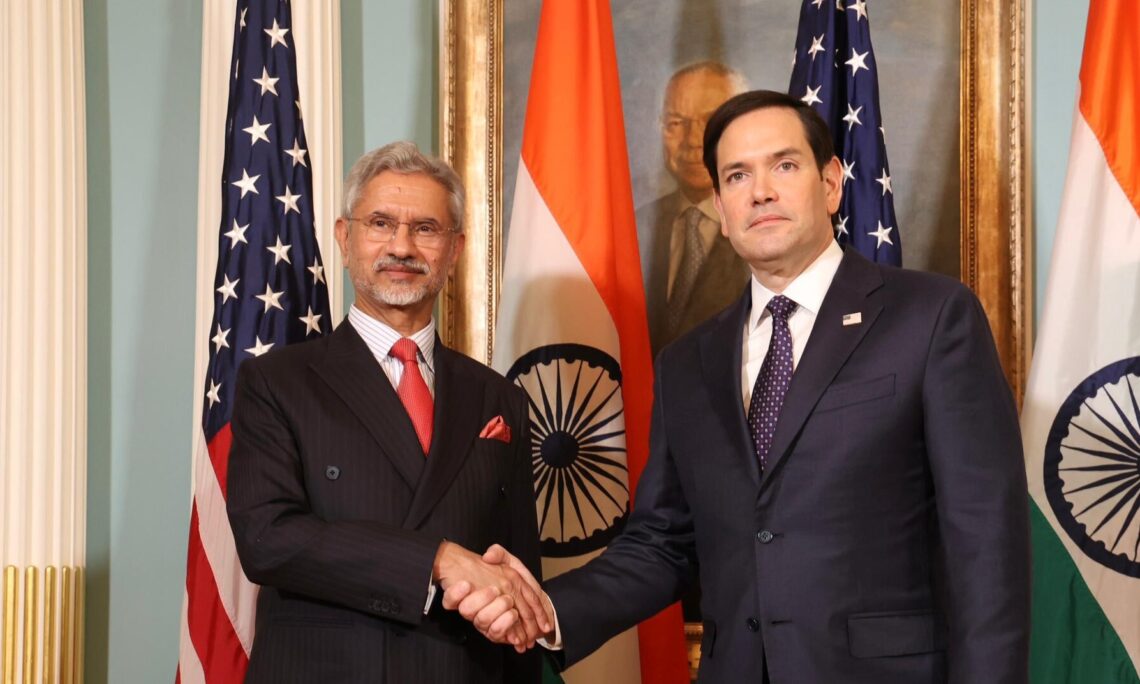US Declares TRF Global Terrorist Group as India Tightens Anti-Terror Diplomacy
The United States has officially designated The Resistance Front (TRF), an alleged proxy of Lashkar-e-Taiba (LeT), as a Foreign Terrorist Organization (FTO) and a Specially Designated Global Terrorist (SDGT) entity. This comes in the wake of the horrifying Pahalgam attack, where 26 civilians — many of them tourists — lost their lives on April 22, 2025. The response from India was swift, forceful, and widely supported domestically and abroad.
India’s external affairs minister S. Jaishankar quickly responded to the US decision with a strong endorsement of the bilateral counter-terrorism partnership. In a social media post, he stated:
“A strong affirmation of India-US counter-terrorism cooperation. Appreciate Marco Rubio and US State Department for designating TRF — a Lashkar-e-Tayyiba (LeT) proxy — as a Foreign Terrorist Organization (FTO) and Specially Designated Global Terrorist (SDGT). It claimed responsibility for the April 22 Pahalgam attack. Zero tolerance for Terrorism. #OpSindoor.”
Origins and Network of the Resistance Front
Formed in recent years, the Resistance Front has repeatedly been linked to the larger LeT network. Although it has been attempting to present itself as a separate, indigenous outfit, intelligence reports from both Indian and international agencies describe TRF as a clear proxy of Lashkar-e-Taiba, already designated a terrorist group by the United Nations.
TRF rose to notoriety after a series of coordinated attacks in Jammu and Kashmir, with the April 22 Pahalgam massacre serving as the tipping point. The civilian toll and the manner in which the attack unfolded sent shockwaves through the region.
Timeline of Events Leading to US Sanctions
- April 22, 2025: A deadly attack in Pahalgam leaves 26 dead, most of them civilians. TRF claims responsibility.
- May 7, 2025: India launches Operation Sindoor, striking nine terror camps across Pakistan and PoK. Over 100 terrorists neutralized.
- May 8–10: Pakistan attempts retaliation with drone and missile strikes; India counters and holds ground.
- May 10: Pakistan reportedly requests a ceasefire.
- May 15: India begins a diplomatic outreach, dispatching delegations to 33 capitals.
- June 14, 2025: US designates TRF as FTO and SDGT.
Official Statements Reinforce Bilateral Unity
Beyond Jaishankar’s reaction, the Indian embassy in Washington also weighed in. Their statement emphasized mutual commitment and called the classification a milestone in joint efforts.
“Appreciate the Department of State for listing The Resistance Front (TRF) as a designated Foreign Terrorist Organization and Specially Designated Global Terrorist. TRF is a proxy of Lashkar-e-Tayyiba and claimed responsibility for the April 22 terror attack on civilians in Pahalgam. ZERO TOLERANCE for terrorism!”
The US State Department echoed this urgency in their formal note, stating that the designation sends a message of accountability. The statement also tied TRF directly to several other assaults on Indian forces over the past year, calling the Pahalgam incident the deadliest civilian-targeted attack in India since the 2008 Mumbai attacks.
India’s Counterattack: Operation Sindoor
India’s counter-response, termed Operation Sindoor, was swift and carried out with significant precision, according to defense sources. The offensive focused on dismantling terror launchpads along the Line of Control and deeper pockets in Pakistan-controlled regions.
According to security officials:
- Over nine terror infrastructure units were hit.
- More than 100 terrorists were neutralized.
- India used satellite intelligence to verify target accuracy in real-time.
- Retaliation from Pakistan led to increased tensions on the border, but Indian forces were able to repel incoming drones and missiles.
By May 10, diplomatic channels between New Delhi and Islamabad were reportedly reactivated, as Pakistan pushed for a ceasefire following days of escalation.
Community Response and Domestic Sentiment
The events have stirred a mixture of grief, anger, and resilience across India. In Kashmir, where the Pahalgam attack occurred, residents held candlelight vigils and silent marches. A few streamers at local protests were spotted simply saying: “We Remember the 26.” That’s it — stark, unadorned, refusing to forget.
Across Indian cities, social media discussions spiked. Former diplomats, security analysts, and ordinary citizens alike weighed in. Some expressed gratitude toward the US administration, while others raised concerns about remaining vigilant. There’s a shared understanding that such policies must be followed by sustained international pressure on terror sponsors.
International Diplomatic Push: 33 Capitals in Play
India’s retaliation wasn’t only military. Top Indian officials were dispatched to 33 global capitals, including Washington DC, London, and Tokyo. The message was loud and clear: States allegedly harboring or supporting terrorist actors must be held accountable. Briefings were held with foreign ministries, and video evidence of TRF’s operations and affiliations with LeT was reportedly presented.
Some officials say it’s the strongest rupee-backed foreign policy maneuver post-Uri — probably stronger, as it combines kinetic and diplomatic force. Whether the impact will run long is uncertain, and some critics worry about the risk of overextension. Still, so far, the synergy seems to be holding.
What’s Next?
The designation of TRF might limit their operational capabilities by choking financial flows and restricting global movement. But groups like these often morph, rebrand, and resurface. Combatting them may take more than just designations — it needs monitoring, preemption, and collaborative intelligence sharing.
For now, both capitals claim to be aligned in a zero-tolerance approach. The Indian administration is expected to push for further global designations against TRF leadership figures. And future operations—both defensive and diplomatic—are being closely watched.
The broader challenge remains: as new fronts emerge, will the world act faster? You’d hope that tragic incidents like Pahalgam won’t have to keep repeating just so global policy catches up.

